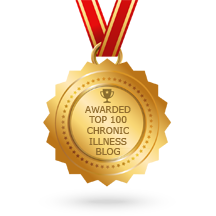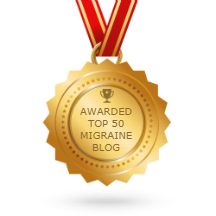5 Things to Do When You Have Food Sensitivities
As someone who is gluten "light," cannot have soy, tyramine and aspartame as well as rapid rise yeast, I know what it's like to sit in a restaurant and worry about hidden ingredients. I've been gluten-free without much change, and I've sat through many conversations about my different intolerances with people who have no idea what they are talking about. Here's some tips on how not to get upset or angry when someone doesn't understand your sensitivity.1. Own your sensitivity
There is no need for you to feel embarrassed about it. A lot of times I've felt embarrassed to ask and subsequently have gotten migraines because I have assumed that there would be nothing problematic in my food.
2. Do not be afraid to be nosy about the ingredients
If you feel like you're asking too many questions, you're not. Remember that this is your health, and that a couple questions that could unveil a hidden ingredient is worth more than feeling terrible for the rest of the day. (Or for a couple days after depending on how long that specific migraine lasts)
3. Make sure that waiters/staff actually check with the kitchen if they are unsure.
This past week, I went to a frozen yogurt store. Soy can be hidden in frozen yogurt, so my first question was if there was any soy. There were two girls working behind the ice cream bar, and the first one immediately said, "Everything has soy." I'm used to not being able to have things, so my boyfriend got some yogurt and as we were paying and about to leave, the other girl says, "Oh actually, none of them have soy." I was so confused, and I soon became agitated. While I appreciated that the second girl checked, I was extremely unhappy with how the first girl had acted, making me feel upset about my sensitivities.
That one incident aside, some waiters (not all) say that they check and actually don't. Just make sure that you ask, and if they don't come back with an answer, ask again.
4. Allergies are taken more seriously than sensitivities
At many restaurants and other dining establishments, waiters and other people will understand an allergy better and take it more seriously than a sensitivity. For me, it is easier to say that I am allergic to soy than to explain that it can trigger migraines. After a while, it will become much easier to say that you have an allergy than explain your medical problems to a stranger.
5. Keep a log of foods that trigger you
Sometimes, you'll try new foods which is really awesome. It's not so awesome when you try that new food and trigger because of it. Take note of what you can and cannot have, and how it can present itself in menus. For example, I can't have aged cheese. I've learned that I don't need to avoid all cheeses, just the ones that have been aged for more than 6 months. Keeping a list on your phone is very helpful, or looking up ingredients in a dish can help you figure out what you can and cannot eat.
I hope that these tips were helpful, and that you have a lovely, migraine-free day.




0 comments: